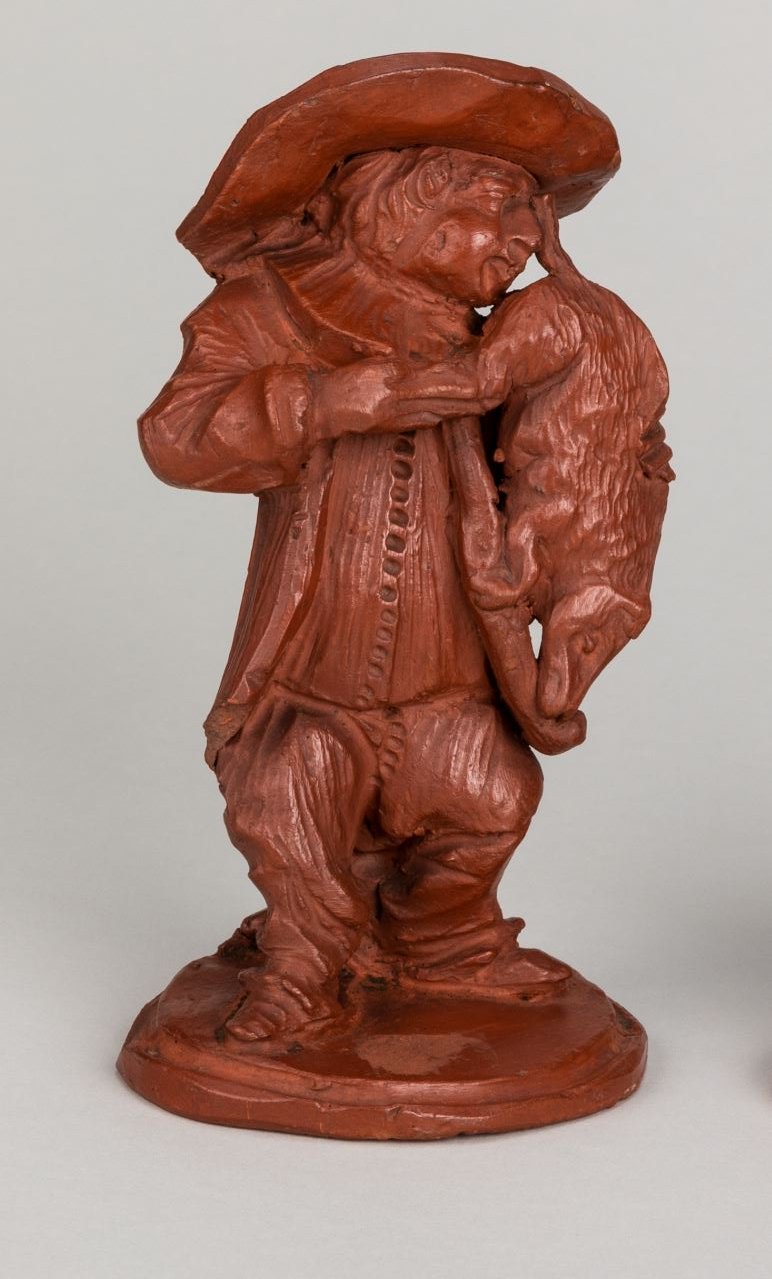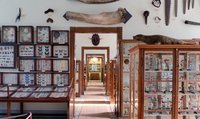Männliche Figur auf runder Plinthe, mit großem Hut und im Begriff, am After eines Wildschweins zu riechen. Das zwergenhafte Figürchen besitzt ein weiteres Pendant. Beide entfalten ihre Brisanz erst auf den zweiten Blick: Die großen Hüte, die langen Nasen und das Wildschwein weisen sie eindeutig als Formen barocken Judenspotts aus. Es handelt sich um sogenannte Bozzetti, also in rotbrauner Siegelerde ausgeführte Entwürfe, anhand derer später vermutlich größere Skulpturen hergestellt werden sollten.
Deutschland (Süddeutschland?), um 1700; aus der Linck-Sammlung, belegt im Linck-Index III. (1787), S. 115, Nr. 189 und 190; Inv.Nr. NAT X 41 V K3) (Höhe: 12,5 cm) und NAT X 45 V K 3) (Höhe: 14 cm).
en

